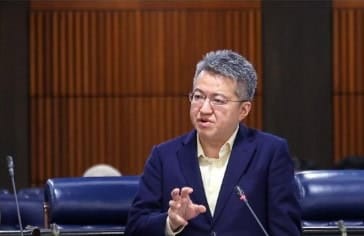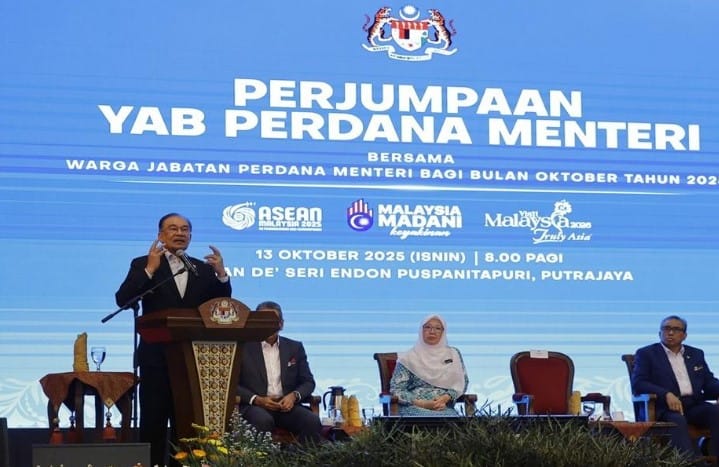
KUALA LUMPUR, May 2 – The government’s move to allow partial resumption of economic activities during the fourth phase of the Movement Control Order (MCO) is not done in haste, as it has made the necessary study and complies with conditions set by the World Heath Organisation (WHO).
Finance Minister Tengku Datuk Seri Zafrul Abdul Aziz said the government, however, is not forcing any company to start operations immediately, as there may be those that need to make prior preparations to meet conditions set by the government.
“As an example, for restaurants, owners must ensure the premises are clean and so on…. So it’s not necessary for all parts of the economy to be opened on Monday,” he said during the Eksklusif TV3 programme aired today.
Tengku Zafrul said the country is currently using only 30 per cent of the capacity.
He said the government has a six-phase plan for reopening economy — Resolve, Resilience, Restart, Recovery, Revitalise and Reform (6R) — and the country is in the third phase, which is Restart.
“We hope that before the end of May, Prime Minister (Tan Sri Muhyiddin Yassin) will announce the details of the recovery plan.
“Every industry is impacted differently. For example, tourism is the industry worst hit by COVID-19 so we have a different plan for that industry,” he explained.
Asked on the rates of unemployment and business closures, Tengku Zafrul said these are happening not just in Malaysia but also in the United States and Europe which are hit by high unemployment rates.
Nonetheless, he said, the government is trying to keep as many people employed as possible by launching a wage subsidy programme with a RM13.8 billion allocation under the Prihatin Rakyat Economic Stimulus Package (initially RM5.9 billion was allocated but the amount was increased by RM7.9 billion under the Additional Prihatin SME Economic Stimulus Package).
“The Social Security Organisation (Socso) made a forecast that 500,000 employees would be affected (become unemployed), but it would be worse if we had not launched the Prihatin package,” he said.
Tengku Zafrul said the country’s gross domestic product (GDP) may fall by three to four per cent following the extension of the MCO to more than five weeks, compared with Bank Negara Malaysia’s GDP growth forecast of -2 per cent to 0.5 per cent after just two weeks of the MCO.
Last year, GDP grew by 4.3 per cent compared with the year earlier.
On the national debt-to-GDP ratio, he said it stands at about 51 per cent now versus the ceiling of 55 per cent, so it is still two to three per cent below the limit set.
“We also have a foreign debt ceiling, which is RM35 billion, so we still have some room there (as well),” said the minister.
On the 2020 budget deficit, he said it is currently estimated at about 4.7 per cent following the introduction of the Prihatin packages, but the figure may rise a little to 5 per cent due to the low crude prices.
For their long-term planning, he also advised companies and the small and medium enterprises to invest in the digital field and equip themselves with the right skills set towards Industry 4.0.
– BERNAMA





More Stories
Malaysia, Brazil Sign Memorandum To Cooperate In Semiconductor Sector – Liew
Kelantan Has Potential To Become Major Local Onions Producer – Mohamad Sabu
Malaysia, Bangladesh Ink Eight MoUs To Boost Bilateral Ties, Defence Cooperation